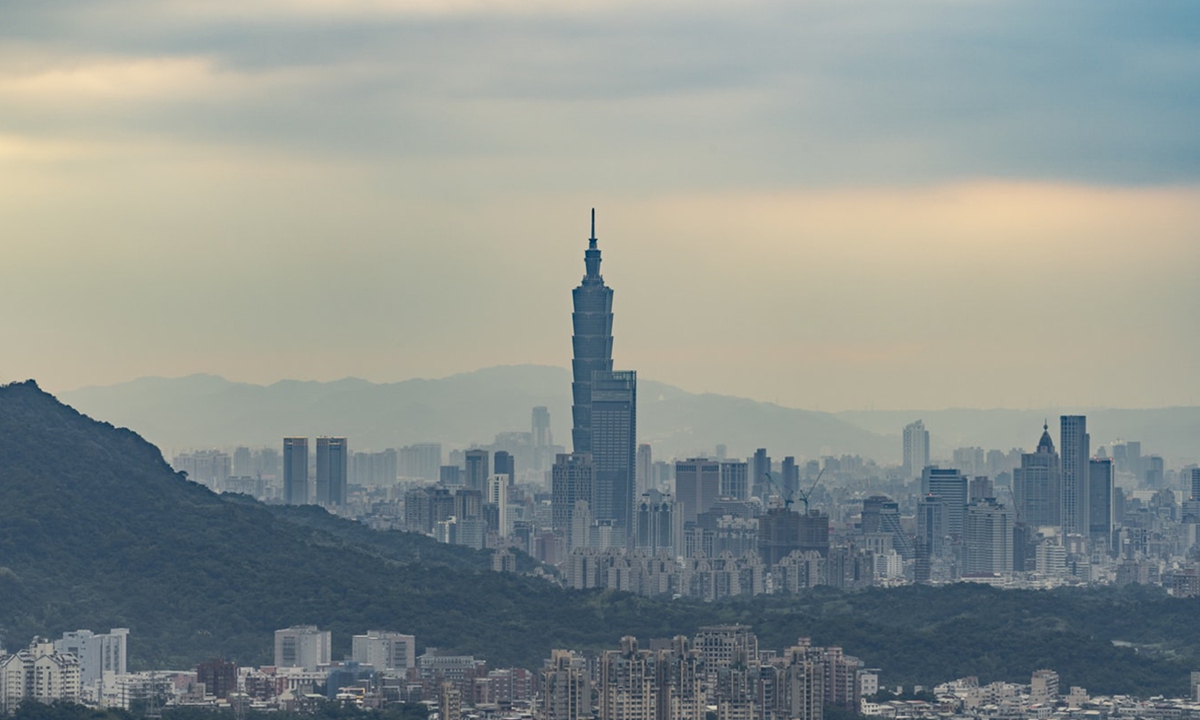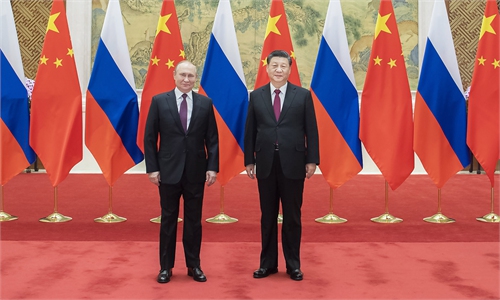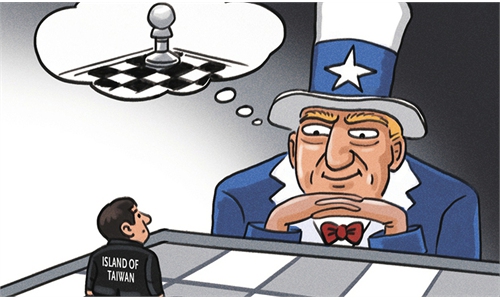DPP, US link Ukraine crisis with Taiwan island, will only ‘draw China, Russia closer’

Taipei, the island of Taiwan. Photo: Unsplash
As tensions rise in Ukraine and attract the world's attention, Taiwan, an island that has been largely ignored for a while, has begun to link its discourse to the Ukrainian crisis, along with collaboration from some US officials who recently claimed that the Biden administration believes that the US' response to the Ukrainian crisis would be seen as a "proxy" for how it would respond to the Taiwan question.
Chinese experts pointed out Monday that the US and the Taiwan authority's hype is nothing but a game of political calculations as the island needs to assuage its anxieties about being a pawn that could be discarded by the US, while Washington, now less powerful, wants to make more economic and military gains by fabricating a war crisis.
In a recent interview with Indian media news18.com on Friday, the head of Taiwan's external affairs authority, Joseph Wu, comparing the Ukrainian crisis with the situation across the Taiwan Straits, said Taiwan is closely watching the situation, claiming that the Chinese mainland is using the Winter Olympics to divert world attention for a possible war. A day later, three anonymous US senior officials told Bloomberg that China is "gauging the US response" to the Ukrainian crisis as a "proxy" on the Taiwan question.
But the US' response looks not solid as before. After US President Joe Biden spoke with Russian President Vladimir Putin on Saturday and warned that the US would "respond decisively and impose swift and severe costs" if Russia invades Ukraine, US National Security Advisor Jake Sullivan on Sunday said that "President Biden is not intending to send in American forces to fight Russia" if there is a war between Russia and Ukraine.
Although Ukrainian President Volodymyr Zelensky on Sunday invited Biden to Ukraine to stabilize the situation, CNN, citing US officials, said the trip is extremely unlikely and there had been no positive response.
"A tale of two crises" was gradually formed after Crimea in 2014, and many analysts, both in and outside of the Chinese mainland, do not consider linking Taiwan and Ukraine proper, despite the US, the architect of the two crises, being the most to blame for the current situation.
They said the US' hype of Ukraine and Taiwan island out of fear of a possible China -Russia "alliance" has brought China and Russia closer. The contradictory statements in the US show that the White House is also aware of the "hyped nature" of the two crises' linkage.
Wu Zijia, a Taiwan-based political observer, said Joseph Wu's remarks are absurd, as he is not the most authoritative person on talking about possible military conflict across the Taiwan Straits, because he does not have access to as much information as military officials. Perhaps he found that the Americans were deliberately adding fuel to the Ukraine-Taiwan link, so he has been helping the Americans to grow the momentum, the observer said.
Xin Qiang, deputy director of the Center for American Studies at Fudan University, told the Global Times that in the case of the mainland's increasing military deterrence against secessionists, the Taiwan authority is afraid that the US will become too preoccupied with Ukraine, and will care less about Taiwan, especially when Washington's credibility and promise have already been torn apart.
Xin said that the military-industrial complex is always behind US provocations and hyping of other "threats."
The arms sales business to Taiwan will become more prosperous, said Xin, noting that the Taiwan authority can use the "warming ties" with the US to attract more local support.
Yuan Zheng, deputy director of the Institute of American Studies at the Chinese Academy of Social Sciences, told the Global Times that Ukraine and Taiwan island are neither core US interests. However, US manipulation of these two challenged the bottom line of Russia and China, which led to their closer ties.
Following the highly anticipated meeting between Chinese President Xi Jinping and Russian President Vladimir Putin on February 4, China and Russia issued a joint statement that elaborated on shared views and consensus on major global and regional issues and delivered a scathing rejection of the US-led West's hegemony that increasingly threatens global security and stability.
The two countries also coordinated their stand on the one-China principle and opposition to the expansion of NATO.
The Biden administration has almost given up trying to improve relations with Russia, and confrontation with China has become its dominant ideology, Yuan said.
Although the Biden administration has realized the limitations of doing so, hawkish pressure has made them unable to turn back, so they can only use the "threats" of China and Russia to strengthen their alliance and then use the alliance to deal with both countries, Yuan said.



